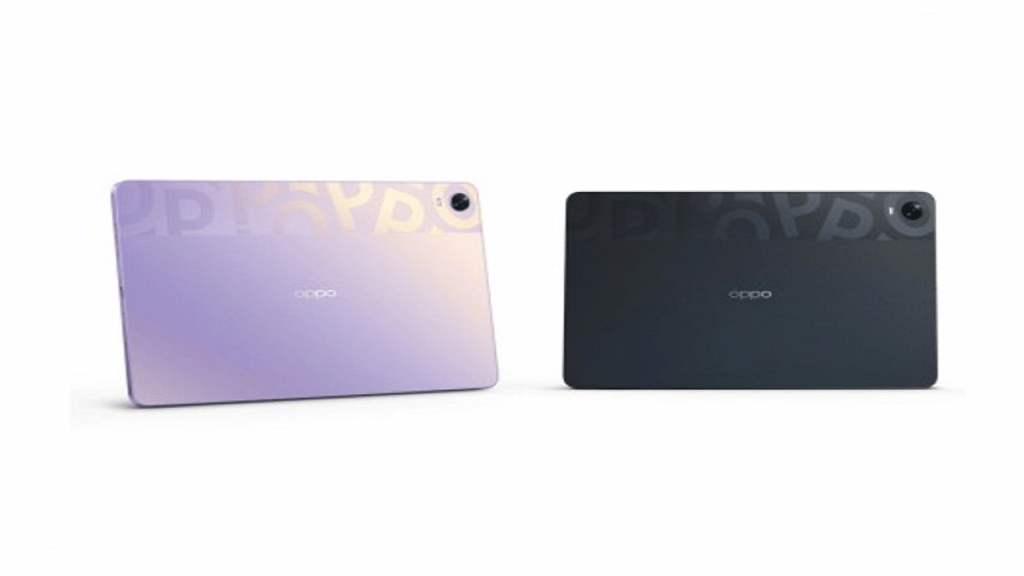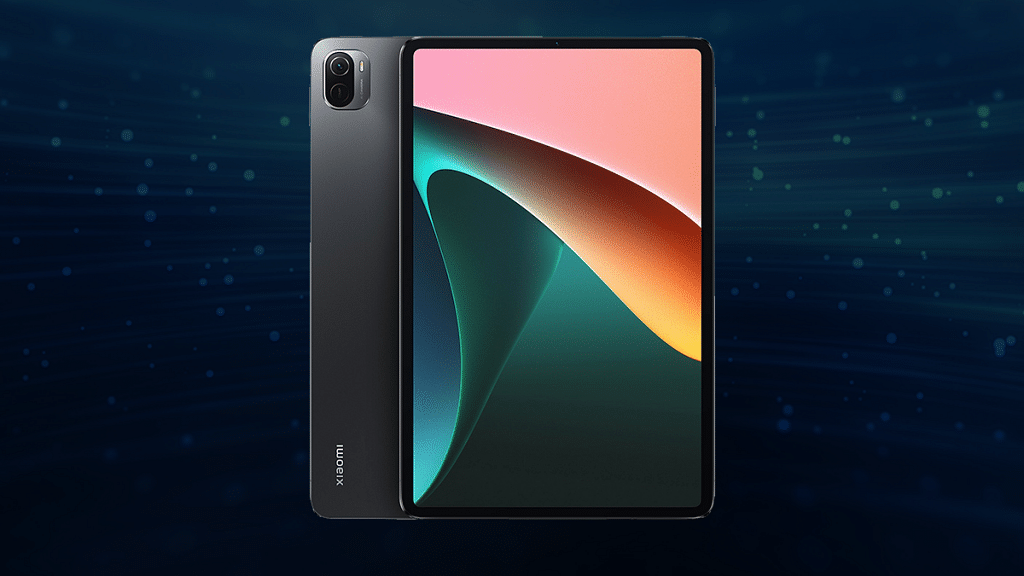Xiaomi has started its fresh innings in the tablet space in India. The Chinese tech giant forayed into the tablet market in the country with the Xiaomi Pad 5 tablet. The first Xiaomi tablet is tagged under Rs. 30,000 and is equipped with a capable set of internals including the octa-core Snapdragon 860 chipset and a 13MP camera.
Xiaomi has earned its fame in the mobile industry in India and across the globe with its pocket-friendly devices. And amongst the top rivals of Xiaomi has been OPPO. Both these Chinese OEMs have been flooding the Indian smartphone and digital accessories market with new products and for the first time, they both have introduced a premium mid-tier Android tablet. We have done several tablet comparison articles recently.
Earlier we compared the Xiaomi Pad 5 Pro and the OPPO Pad tablet. In this article, we are comparing the standard Xiaomi Pad 5 with the OPPO Pad tablet. Which one of the two Xiaomi or the OPPO tablets is a good buy option under Rs. 30,000 price brackets in the country. Read on to know:
Xiaomi Pad 5 Vs OPPO Pad tablet: Display Features
We’ll start off this list with the Xiaomi Pad 5 tablet. Xiaomi has layered an IPS LCD panel on the Xiaomi Pad 5 that measures 11-inches in size. This LCD panel comes with a 1600 x 2560 pixels screen resolution and has an aspect ratio of 16:10. The Xiaomi tablet’s display further features an 82.8 percent screen-to-body ratio and HDR10+ certification to support 1080p video playback at OTT platforms such as Netflix and Amazon Prime videos, etc. The Xiaomi Pad 5 tablet’s display has a high 120Hz refresh rate that helps with smooth frame transitions with graphic-intensive apps and games.

The OPPO Pad tablet also employs a high-resolution LCD panel which is similar to the Xiaomi Pad 5 in terms of features and size. The OPPO Pad tablet’s display is also 11-inches in size and supports the same 1600 x 2560 pixels screen resolution as the Xiaomi Pad 5 tablet. The refresh rate and remaining display specifications of the OPPO Pad are also identical to the Xiaomi Pad 5. Be it the 120Hz refresh rate or HDR10+ certification. You will have a good experience with binge-watching shows and movies and with gaming.
Xiaomi Pad 5 Vs OPPO Pad Tablet: Chipset, Configuration Comparison
The Xiaomi Pad 5 is tagged in the premium mid-tier tablet category with its Snapdragon 860 octa-core chipset. The 7nm flagship-grade Qualcomm chipset driving the Xiaomi Pad 5 tablet employs Adreno 640 GPU to handle all the graphically intensive apps and games without any stutters.

Xiaomi has launched its first Android tablet in India with 6GB RAM and 128GB UFS 3.1 storage. The configuration offered by the Xiaomi Pad 5 is powerful enough to drive general and basic tasks with ease. This tablet can also perform well with high-end apps and gaming.
The OPPO Pad tablet also uses a premium range Qualcomm 800 series chipset for power delivery; the Snapdragon 870 processor to be specific. This is a new-generation premium mobile chipset that is best known for its lag-free gaming performance.
This 5G chipset is slightly more powerful compared to the Snapdragon 860 chipset offered by the Xiaomi Pad 5 tablet. The OPPO tablet is available with 6GB/ 8GB RAM and 128GB/256GB of UFS 3.1 storage capacity.
Coming to the software, the Xiaomi Pad 5 has been pre-loaded with Android 11 OS which is topped with a custom MIUI 12.5 interface. The Xiaomi tablet also has pre-installed multiple third-party Android apps including a bunch of in-house Xiaomi apps. The OPPO Pad tablet also uses the same Android version, i.e, Android 11 OS. This tablet also has a custom UI (ColorOS 12) and a bunch of in-house and third-party apps pre-installed.
Overall, both Xiaomi Pad 5 and the OPPO Pad are among the most potent tablets under Rs. 30,000. Do note that OPPO is yet to bring the Pad 5 tablet to India. But the expected pricing of the upcoming OPPO tablet could be similar to the Xiaomi Pad 5 (below Rs. 30,000).
Xiaomi Pad 5 Vs OPPO Pad: Which One To Choose For Better Cameras?
The camera hardware on both Xiaomi Pad 5 and the OPPO Pad tablets can handle general photography requirements. The Xiaomi Pad 5 sports a single rear camera that is similar to the OPPO Pad tablet.
The Xiaomi Pad 5’s imaging setup comprises a 13MP main snapper at the back with an f/2.0 aperture along with an LED flash. The Xiaomi Pad 5’s camera setup has multiple camera modes including HDR and Panorama. The Xiaomi tablet can record 4K and 1080@30fps video recording.
The OPPO Pad tablet also has basic camera hardware likewise the Xiaomi Pad 5. The back panel on the OPPO tablet also has the same 13MP snapper with an f/2.2 aperture. This tablet’s camera also supports 4K and 1080p@30fps video recording. The shooting modes are also the same as the Xiaomi tablet so is the selfie camera.
Speaking of the selfie cameras, both Xiaomi Pad 5 ad the OPPO Pad tablet uses an 8MP camera with an f/2.2 aperture. The selfie camera on both Xiaomi and OPPO tablets can record 1080p@30fps videos. This basic camera snapper will help with decent self-portraits.
Xiaomi Pad 5 Vs OPPO Pad Tablet: Battery And Fast Charging Capacity
The Xiaomi Pad 5 tablet gets its fuel from a mammoth 8,270 mAh battery unit. This large-sized battery is capable of driving the Xiaomi tablet for more than half a day on a single charge. That’s with moderate usage all day. The fast charging speed supported by the Xiaomi Pad 5 tablet is 33W which can quickly recharge the power backup.
On the other hand, the OPPO Pad 5G tablet features a slightly bigger 8,360 mAh battery that will offer more backup compared to the Xiaomi pad tablet. The fast charging speeds offered by the OPPO tablet are the same as the Xiaomi tablet, i.e. 33W.
Xiaomi Pad 5 Vs OPPO Pad Tablet Comparison Verdict: Which One To Buy?
Both Xiaomi Pad 5 and the OPPO Pad tablet are among the most feature-rich tablets in the market. The prices for the Xiaomi Pad 5 are known since this tablet has gone official in India. However, OPPO is yet to bring the OPPO Pad tablet in the Indian market, hence, its pricing and availability details are not known. You can go for any of the tablets depending on which one goes easy on your pockets.
Do let us know your thoughts in the comments below. You can follow the GizNext Tech Enthusiast Telegram group and GizNext Tech Enthusiast WhatsApp group for fresh technology updates.
